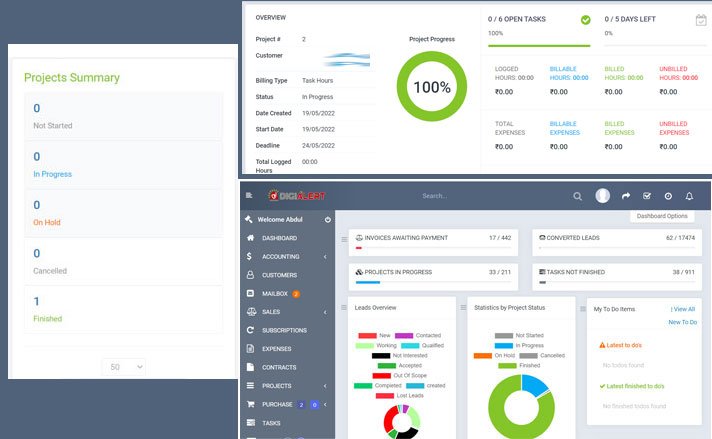Telecom Network Security Services
Telecom Network Security Services
Telecom network security services refer to the various measures and technologies that are implemented to protect telecom networks from various types of cyber threats and vulnerabilities. These measures may include firewalls, intrusion detection and prevention systems, network segmentation, and secure protocols for data transmission and access control. Telecom network security services also often include regular testing and assessment of network security to identify and fix vulnerabilities before they can be exploited by attackers. These services are critical for ensuring the confidentiality, integrity, and availability of telecom networks and the data and communication services they support.
WHAT IS
Telecom Network Security Services
As digiALERT, it is essential to offer a range of services to protect against cyber-attacks and ensure the security of sensitive information and communication systems. These services may include:
- Firewalls, antivirus software, intrusion detection and prevention systems, and encryption to secure data transmission and protect against external threats.
- Training and awareness programs for employees to help ensure that all personnel are aware of the risks and know how to protect against them.
- Regular security assessments to identify vulnerabilities and ensure compliance with industry regulations and standards.
Telecom network security services are crucial for digiALERT as it helps in protecting sensitive information, maintaining the reliability and integrity of communication systems, and ensuring the confidentiality and privacy of customers. As digiALERT, it's important to provide these services to our customers in order to secure their information and communication systems.
Speak to an expert
key features
Telecom Network Security Services
Types of
Telecom Security Services
- Network vulnerability assessment: focuses on identifying vulnerabilities in an organization's network infrastructure, such as servers, routers, and switches.
- Web application vulnerability assessment: focuses on identifying vulnerabilities in web-based applications, such as e-commerce platforms and customer portals.
- Mobile application vulnerability assessment: focuses on identifying vulnerabilities in mobile applications, such as those downloaded from app stores.
- Wireless network vulnerability assessment: focuses on identifying vulnerabilities in an organization's wireless network, including wireless routers and access points.
- Physical security vulnerability assessment: focuses on identifying vulnerabilities in an organization's physical security, such as access controls and surveillance systems.
- Social engineering vulnerability assessment: focuses on identifying vulnerabilities related to social engineering attacks, such as phishing scams and pretexting.
- Compliance-based vulnerability assessment: focuses on identifying vulnerabilities related to compliance with industry regulations and standards, such as PCI DSS and HIPAA.
- Penetration testing: involves simulating an attack on a system or network to identify vulnerabilities that could be exploited by a real attacker.
- Red teaming: involves a team of security experts working together to identify and exploit vulnerabilities in a system or network.
- Threat modeling: involves identifying and evaluating potential threats to a system or network, as well as identifying and mitigating vulnerabilities that could be exploited by those threats.
Statistics on
Telecom Security Services
Speak to an expert
How do we do
Telecom Network Security Services
digiALERT utilizes a multi-faceted approach to ensure the protection of our clients' communication systems.
First, we conduct thorough assessments of our clients' current security measures to identify any vulnerabilities or weaknesses. This includes reviewing network architecture, identifying potential entry points for attackers, and evaluating the effectiveness of existing security controls.
Next, we implement a variety of security measures to protect against potential threats. This may include firewalls, intrusion detection and prevention systems, encryption, and other technologies to safeguard against unauthorized access, data breaches, and other malicious activities.
We also provide ongoing monitoring and maintenance to ensure that security systems remain up-to-date and effective. This includes regular testing and updates, as well as incident response planning to quickly and effectively address any security breaches that may occur.
Additionally, we offer training and education for clients' employees to promote security best practices and awareness of potential risks. This includes educating employees on safe email practices, identifying and avoiding phishing attempts, and understanding how to identify and report security incidents.
WHY TELECOM NETWORK SECURITY SERVICES
WHO NEEDS TELECOM NETWORK SECURITY SERVICES
Vulnerability assessment is an important aspect of cybersecurity because it helps organizations identify and address potential vulnerabilities in their systems, networks, and applications. These vulnerabilities can be exploited by cybercriminals to gain unauthorized access to sensitive data, disrupt operations, or cause other damage to an organization. By identifying and addressing vulnerabilities, organizations can reduce the risk of a successful cyber attack and protect their assets and data.
Almost every organization can benefit from vulnerability assessment, regardless of size or industry. This includes small businesses, large corporations, government agencies, and non-profit organizations. All of these types of organizations hold sensitive data or have critical systems and networks that need to be protected.
In addition to protecting against cyber attacks, vulnerability assessment can also help organizations comply with regulatory requirements and industry standards. Many industries, such as healthcare and finance, have strict regulations in place that require organizations to regularly assess and address vulnerabilities in their systems. Failing to do so can result in significant fines and legal consequences.
How often Telecom Network Security Services recommended
When it would be performed
The frequency of vulnerability assessments is typically determined by the organization's risk profile, the criticality of its assets and the rate at which new vulnerabilities are discovered. In general, it is recommended that organizations conduct vulnerability assessments on a regular basis to ensure that their systems and networks are secure and compliant with industry regulations.
For some organizations, conducting a vulnerability assessment once a year may be sufficient. For others, it may be necessary to conduct assessments more frequently, such as every quarter or even monthly.
There are several circumstances in which an organization may want to conduct a vulnerability assessment:
- When implementing new systems or networks: it is important for an organisation to assess them for vulnerabilities to ensure that they are secure.
- After experiencing a cyber attack: it is important to conduct a vulnerability assessment to identify any weaknesses that may have contributed to the attack and to implement measures to prevent future attacks.
- When complying with regulatory requirements: Many industries, such as healthcare and finance, have strict regulations in place that require organizations to regularly assess and address vulnerabilities in their systems.
- When making significant changes to an organization's infrastructure: such as upgrading software or hardware, it is important to conduct a vulnerability assessment to ensure that these changes have not introduced any new vulnerabilities.
Speak to an expert
How are we
unique
As digiALERT, we pride ourselves on offering top-of-the-line security services for the telecommunications industry. Here are some ways in which we differentiate ourselves from other vendors in the market:
-
Expertise: Our team is composed of security professionals with years of experience in the telecommunications industry, giving us a deep understanding of the unique challenges and threats facing this sector.
-
Services offered: We offer a wide range of services, including penetration testing, incident response, threat intelligence, and compliance services, in addition to traditional security services like firewalls and intrusion detection.
-
Technology: We use the latest technology and tools to ensure that our clients have the best possible protection against cyber threats.
-
Customization: We understand that every telecommunications company has different needs, and we work closely with our clients to tailor our services to their specific requirements.
-
Experience: We have a track record of successfully working with telecommunications companies and have gained a reputation for providing reliable and effective security solutions.
-
Support: We provide comprehensive customer support, including 24/7 monitoring and incident response to ensure our clients' security needs are met at all times.
-
Certifications: We are certified and accredited to demonstrate our commitment to quality and security.













 ISO/IEC 27001:2022
ISO/IEC 27001:2022 ISO/IEC 27001:2022
ISO/IEC 27001:2022 ISO/IEC 20543:2019
ISO/IEC 20543:2019 ISO/IEC/IEEE 29119-5:2024
ISO/IEC/IEEE 29119-5:2024 CSA Certificate
CSA Certificate Incorporation
Incorporation Makeinindia
Makeinindia Authorized partner
Authorized partner MSME Chennai
MSME Chennai digiALERT Tan
digiALERT Tan GST Chennai
GST Chennai Pancard
Pancard Amended GST
Amended GST